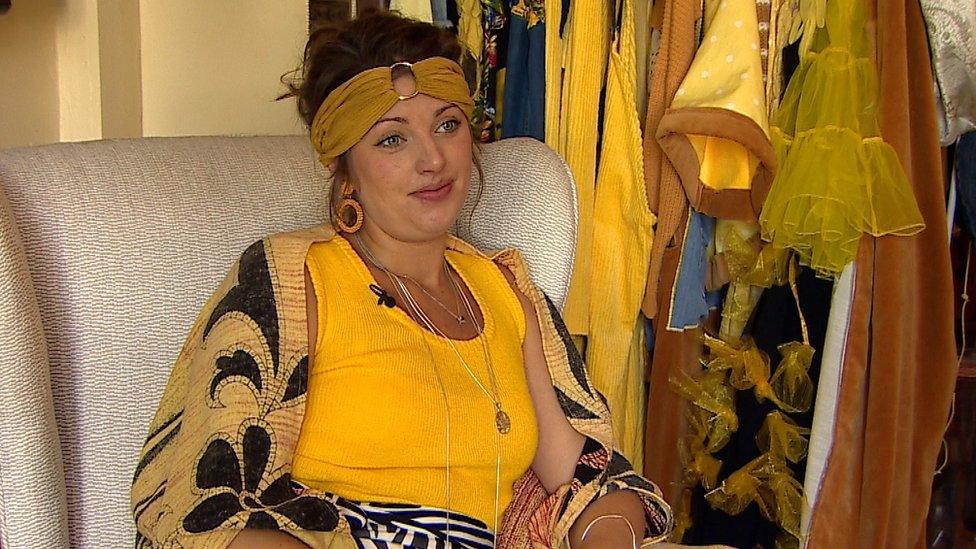Endometriosis: Call to teach menstrual wellbeing in Wales
- Published
'Endometriosis left me to suffer in silence'
A woman who had to wait 11 years before an endometriosis diagnosis has joined calls for menstrual wellbeing to be taught in schools.
Charl Davies, of Blaenavon, Torfaen, said she had to "suffer in silence".
Member of the Senedd Suzy Davies, who has also suffered, has called for the topic to be compulsory in schools.
The Welsh Government said it expected one of the groups working on the new curriculum to consider topics like menstrual wellbeing in more detail.
Charity Endometriosis UK said this provided hope, but not certainty, to those struggling with the condition.
It said women in Wales were waiting on average for nine years for a diagnosis, compared to a UK average of eight years.
It also said women were now having to wait longer because of delays related to coronavirus - but said a greater awareness of the condition from a younger age could help reduce diagnosis times.
Endometriosis is a condition where tissue, like that in the lining of the womb, grows elsewhere in the body, often around reproductive organs, the bowel and bladder.
Like the womb lining, it builds up and bleeds every month, but with no way of escape, blood becomes trapped and causes inflammation, pain and the formation of scar tissue.
The condition, which affects one in 10 women in the UK, can cause pain, heavy periods and infertility.
There is no cure, but treatments can reduce symptoms.
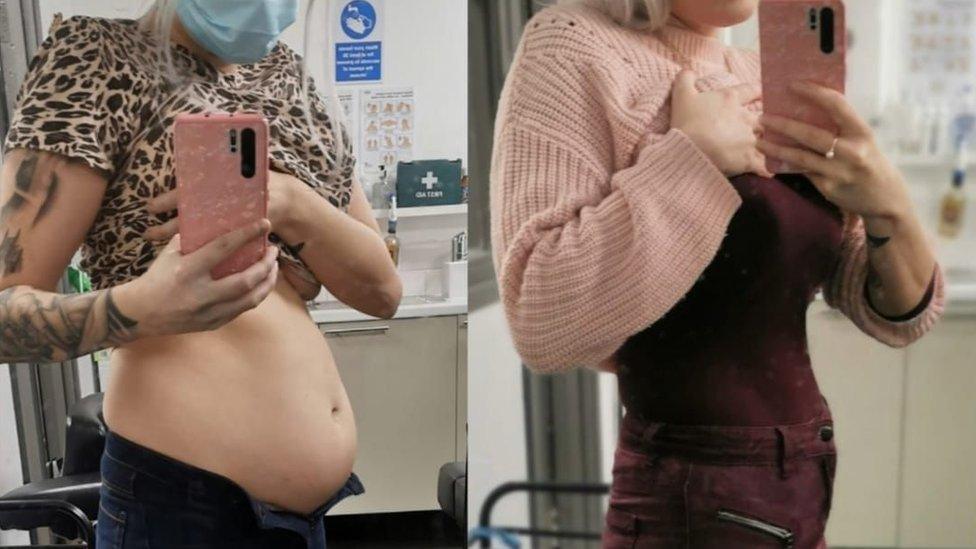
Endometriosis caused Charl Davies to suffer from bloating
Diagnosis 'bittersweet'
Charl Davies, 28, started to experience symptoms of the condition at the age of 10 and said the pain was so bad it would cause her to become breathless and faint.
She said she spent "most of her time as a child" crying over the disease and would tell her mother she was in so much pain she could not go to school.
Last year, 17 years after her symptoms started and 11 after she began looking for a diagnosis, she got one after two laparoscopies on the NHS and a private consultation.
It was a "bittersweet moment", she said.
"In that moment I felt like, wow, all these years. Nobody listened to me. And I felt really emotional."
She thinks she would have found a correlation between her symptoms and the condition if she had been taught about it in school, but instead was left to "suffer in silence".
"I feel like it would benefit so many people and stop endometriosis in its tracks rather than letting it progress over the years, attaching to other organs, it takes years for it to do that," she said.
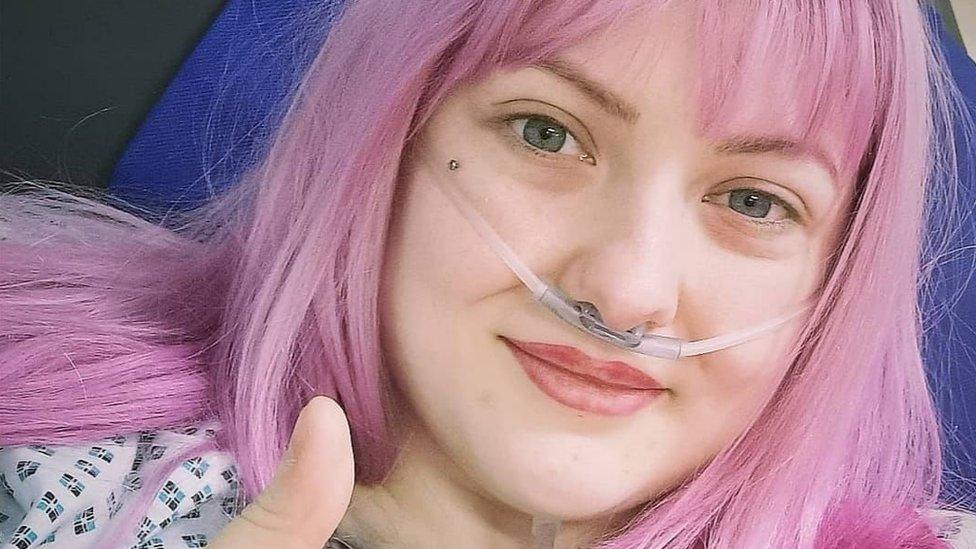
She needed two laparoscopies, a keyhole surgery where a camera is used to look at internal organs, before she could get a diagnosis
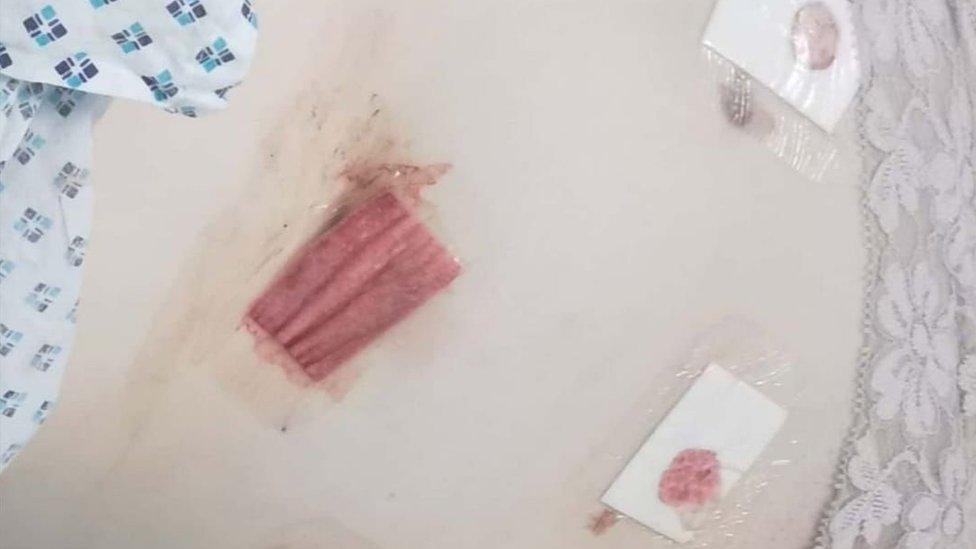
She needed two laparoscopies, a keyhole surgery where a camera is used to look at internal organs, before she could get a diagnosis
Rowan Walsh, from Monmouthshire, was diagnosed with endometriosis in 2017.
She said her symptoms started aged 11 when her periods started: "I knew my periods weren't normal, they were just so heavy," she said.
"It is debilitating every single day, not just during your period like some people think - it is every day."
She told Claire Summers on BBC Radio Wales if she had been told about it in school it would have helped: "Having that education in school would have made such a massive difference in terms of knowing what to fight for."
Fair Treatment for the Women of Wales, a patient-led women's health equality charity, has been campaigning for menstrual wellbeing education in Wales for the last two years and is urging the government to act.
In a statement, the group said: "We believe that menstrual wellbeing needs to be on the curriculum in Wales to ensure that we overcome taboos and misconceptions which see periods and associated issues like heavy bleeding and pain either go unspoken or dismissed as being 'normal'.
"Far too many pupils are not getting the best out of their education as a result of their periods, and future health and prospects are also affected."
'Verge of fainting'
Suzy Davies, the education spokeswoman for the Welsh Conservatives' Senedd group, said she was diagnosed with endometriosis in her late 40s.
She proposed an amendment to make menstrual wellbeing a mandatory part of the new curriculum, as it was in England in 2020, but this was rejected by a majority of the Children, Young People and Education Committee.
Ms Davies said she was told "it's a mess in there" when she was diagnosed, but said it helped to explain the "nasty" symptoms she had experienced for two years.
She said: "There were times when I was on the verge of fainting in work, which I just put down to something else completely and it's not. It turns out to be endometriosis and the effect it has on you."
Education Minister Kirsty Williams told the committee she agreed it was an important topic and she would work with one of the groups developing the curriculum guidance to see what opportunities there were to include it.
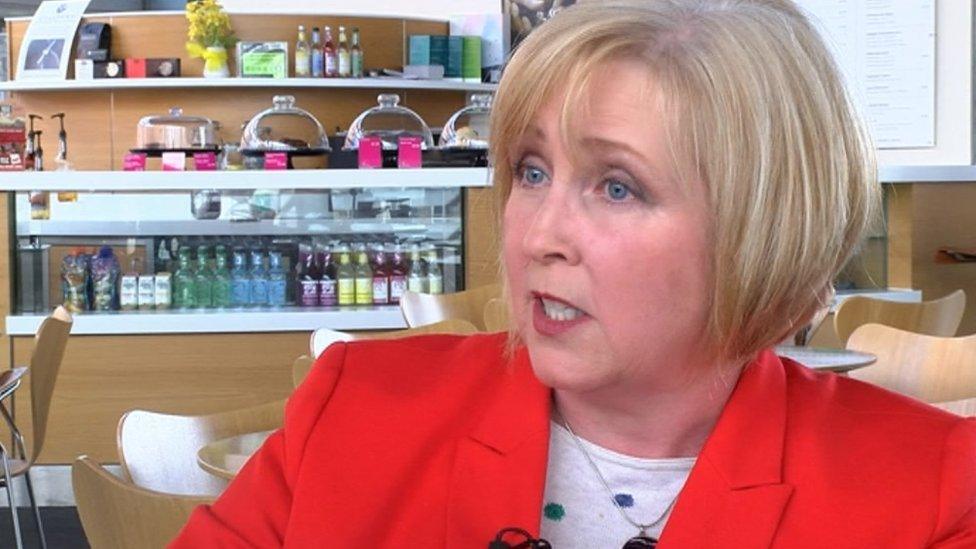
Suzy Davies was diagnosed with endometriosis in her late 40s
Ms Davies said she planned to bring back the amendment at a later stage of the curriculum bill.
The Welsh Government said: "Growing up has a critical impact on learners' health and wellbeing. The expectation within the new curriculum is that schools consider a range of issues that affect learners' physical health and help them understand and manage developmental changes, including puberty and conditions such as endometriosis.
"The Relationships and Sexuality Education (RSE) working group is currently developing draft guidance which will form part of the Curriculum for Wales framework. We expect the group to consider topics such as menstrual wellbeing in more detail."
You can see more on this story on Wales Live at 22:35 GMT on Wednesday on BBC One Wales, and on the BBC iPlayer
- Published6 October 2019
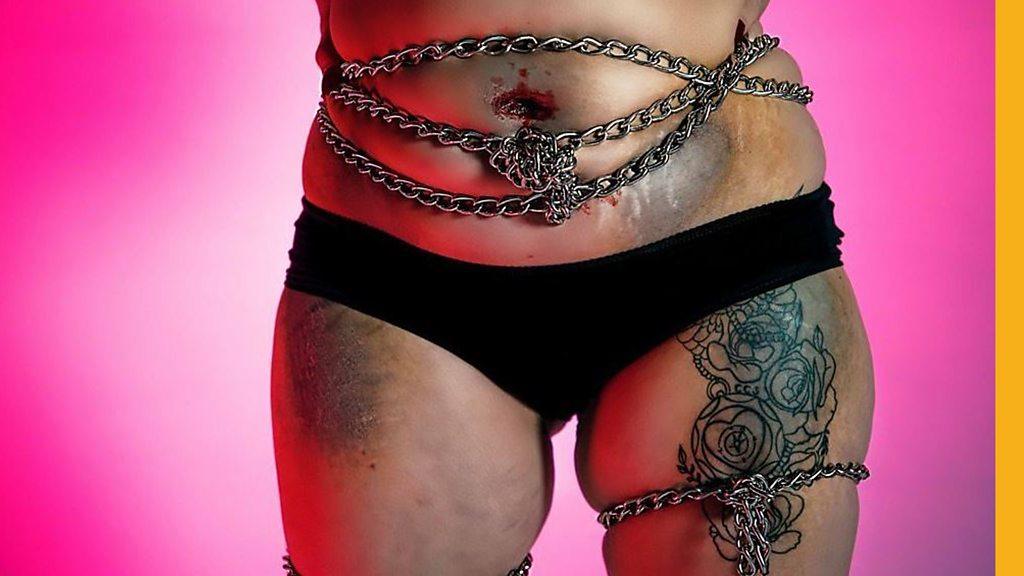
- Published7 October 2019
